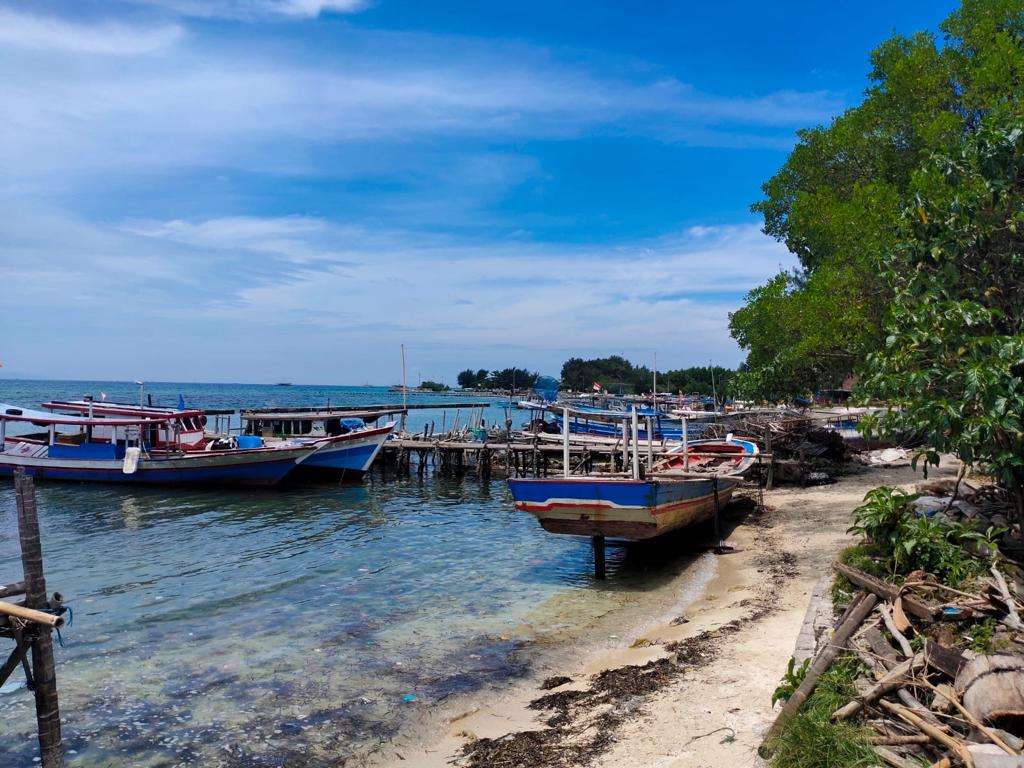Depok-Smart tourism is a tourism sector development concept that utilizes information technology to build tourism experience infrastructure, including tourists’ experiences in accessing information before, during and after traveling. Smart tourism connects all parts of the tourism value chain into a dynamic tourism digital platform, so that tourists can create and produce experiences together with service providers in real time and increase the connectivity of tourism businesses and destinations in the global tourism market.
The development of smart tourism is considered as a solution to increase the connectivity of tourist destinations, especially those that are difficult to access, such as destinations in remote locations and small islands separated by sea, as well as integrating stakeholders who are spread out in one experience platform that can be accessed directly by global tourists. Apart from connectivity, islands as tourist destinations also have big challenges from their natural environment. Climate change which is felt globally, difficulties in managing and processing waste, the use of environmentally friendly energy, demands for sustainable practices are challenges in developing island tourism in an effort to realize blue economic development.
In research conducted by lecturer in the Tourism Business Management study program, Vocational Education Program, Universitas Indonesia (UI) Dr. Diaz Pranita, M.M., said that the development of digital technology is massive, especially the use of blockchain technology is considered as one solution to ensure and guarantee sustainable tourism area management practices, develop environmentally friendly products, and increase inclusiveness.
In principle, blockchain is a centralized and distributed digital ledger that functions as an absolute record holder for various transactions and activities within a value chain. Blockchain also offers transparency of network-based activities and transactions, where the confidentiality of the parties involved is maintained by cryptographic protocols and encrypted messages, so the blockchain technology security system is considered very high. Blockchain technology can also be a breakthrough for reducing transaction costs and operational costs through the use of tokens to carry out transactions to be exchanged and allocated directly, and appropriately to stakeholders within the experience platform, including taxation.
 (Photo: Thousand Islands which is one of the destinations for developing smart tourism)
(Photo: Thousand Islands which is one of the destinations for developing smart tourism)
This research was carried out with other lecturers, namely Dr. Sri Bachelor, Dr. Budiman Mahmud Musthofa, S.Sos., M.Si., Hadining Kusumastuti, S.Sos., M.Ak., and Prof. Ts. Dr. Mohamad Sattar Rasul, found that this technology has become enabler to implement various other technological innovations, such as circular economy to accelerate the progress of tourism in a region, especially water areas. “In adapting the concept of a blue economy, maritime areas in Indonesia, especially in the Thousand Islands, can develop a mix of marine products, such as marine/coastal tourism, marine conservation, marine processed products, and others, as well as ensuring that sustainable practices are implemented consistently, said Dr. Diaz.
She further said that blockchain technology can be used to ensure that every aspect of the development of the blue economy is carried out because it is transparent, traceable, cannot be removed or erased, is decentralized and can be operated by many actors (interoperability) according to their respective roles. Therefore, support for the preservation of marine resources, implementation of a marine circular economy, and restoration of the health of marine ecosystems which have dominant value for improving the quality of the marine economy, can be ensured through the use of blockchain technology. This aims to ensure the realization of the development of smart tourism in a region, especially island areas which are full of challenges.
The use of digital technology has not been as dominant in the tourism industry as it is today. Not only to support a destination in achieving competitiveness, but also to connect its products and services to the global market, and enable it to integrate all existing resources. “Digital literacy is an important competency to strive for in the current digital era. It is very important for local talents in tourist destinations and needs to be supported by the state to increase digital literacy, so that they can more easily adapt to new and innovative technology in the future. “Digital literacy of human resources in the tourism area will influence the successful adoption of blockchain technology, as well as support the development of smart tourism,” said Diaz.
The results of this research state that digital literacy and the blue economy significantly influence the ability to adapt and utilize blockchain technology optimally, which ultimately has an impact on achieving smart tourism to increase the competitiveness and sustainability of a destination. Information literacy is the dimension that has the highest influence in forming digital literacy, while restoring the health of marine ecosystems has an important impact in strengthening the blue economy.
The development of various aspects, including digital literacy, blue economy, and blockchain technology can help encourage the sustainability of the tourism industry. Furthermore, it is necessary to develop several derivative concepts for sustainable tourism development in the form of future studies, especially the concepts of maritime cooperation, economic performance through tokenization, development of biomimicry technology, and conservation of coastal and marine tourism areas.


